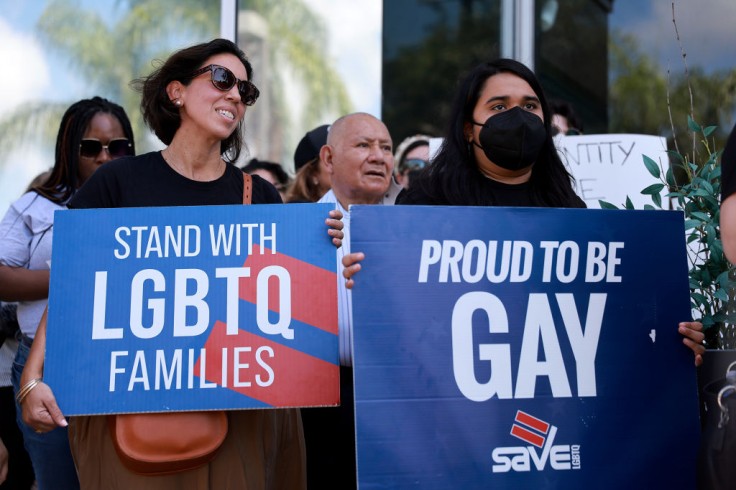
Six Florida students, their parents, and two authors have filed a lawsuit against a central Florida school district for imposing a ban on a children's book featuring same-sex penguin parents.
The Lake County school board, situated near Orlando, prohibited access to the book titled "And Tango Makes Three," based on a true story about two male penguins raising an orphaned penguin chick at New York City's Central Park Zoo.
The ban, which the district attributed to the "Don't Say Gay" law, has now prompted a legal battle questioning its constitutionality and impact on freedom of expression.
Controversial Book Ban and its Legal Consequences
According to Orlando Weekly, the lawsuit was filed in the U.S. District Court for the Middle District of Florida, the reason for prohibiting students from using Tango was due to its content.
Specifically, Tango portrayed the story of a same-sex animal couple who had adopted a child, and it expressed the viewpoint that same-sex relationships and families with same-sex parents are valid and can lead to happiness, health, and love.
The suit claims that the school barred access to Tango because of these elements.
The Lake County school district's decision to restrict students in kindergarten through third grade from accessing "And Tango Makes Three" triggered a legal battle that is now unfolding in U.S. District Court for Middle Florida.
The lawsuit argues that the district's ban infringes upon the First Amendment rights of the authors and students.
By prohibiting access to the book for partisan and political reasons, the district is accused of limiting students' right to receive information and the authors' right to freedom of expression.
The plaintiffs assert that the ban is vague, overbroad, and goes against the core principles of the U.S. Constitution.
As per NBC News, the authors of "And Tango Makes Three," Peter Parnell and Justin Richardson, express their motivation for filing the lawsuit in a joint statement.
They emphasize the importance of ensuring that no child is denied access to age-appropriate information due to the biases of a few individuals.
Parnell and Richardson highlight the book's themes of difference, acceptance, and love, and argue that it provides a heartwarming portrayal of a same-sex family structure.
Their intention is to protect authors from censorship driven by intolerance and to uphold the right of students to access diverse literature.
The lawsuit includes six students, aged 5 to 12, referred to by their initials, who join the legal action through their parents or legal guardians. Each student has unique reasons for wanting to read "And Tango Makes Three."
For example, one student identified as Z.T., who is 12 years old and gay, appreciates LGBTQ stories and is drawn to the book's depiction of a same-sex couple raising an adopted child.
Another student, D.S., is interested in learning about different family structures as he lives with his grandmother, brother, and half-brother. D.S. hopes to become a veterinarian and is particularly passionate about animals.
Challenging the "Don't Say Gay" Law and Defending Freedom of Expression
The lawsuit against the Lake County school district is not the first legal action in Florida regarding book bans and restrictions.
As reported by Tallahassee, last month, another lawsuit was filed against the Escambia County School District and its school board for removing ten books related to race and the LGBTQ community.
Furthermore, there was a separate lawsuit last year seeking to block the implementation of the "Don't Say Gay" law, which restricts sexual orientation or gender identity instruction in certain grades.
Legal experts argue that these book bans and restrictions raise concerns about the infringement on First Amendment rights and the impact on students' access to diverse ideas and perspectives.
Supporters of the banned books highlight the importance of inclusivity, acceptance, and education in creating a safe and nurturing environment for all students.
The lawsuit represents authors, students, and parents who believe that every child should have access to age-appropriate information and literature that fosters understanding and acceptance.
As the legal proceedings unfold, the case will provide significant insights into the balance between educational guidelines, freedom of expression, and the rights of students to diverse and inclusive literature.